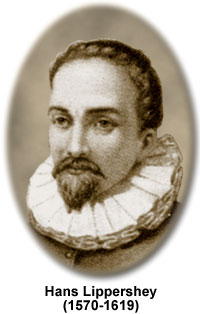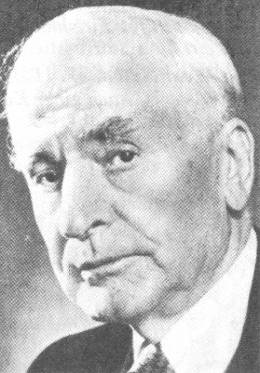NAVIGATION COLUMN
Home Page
Yahoo Groups:
History 1 Day 2
Nuremburg Data
Daily History Pages:
In Calendar Form
FAIR USE NOTICE: This site could contain copyrighted material the use of which has not always been specifically authorized by the copyright owner. We are making such material available in our efforts to advance understanding of historical, political, human rights, economic, democracy, scientific, environmental, and social justice issues, etc. We believe this constitutes a 'fair use' of any such copyrighted material as provided for in section 107 of the US Copyright Law. In accordance with Title 17 U.S.C. Section 107, the material on this site is distributed without profit to those who have expressed a prior interest in receiving the included information for research that could include educational purposes. If you wish to use copyrighted material from this site for purposes of your own that go beyond 'fair use', you could most likely need to obtain permission from the copyright owner.
|
October 2

322BC Death: Aristotle, of indigestion.

1187 Saladin, the Sultan of Syria, captures Jerusalem from the Crusaders.
1263 At Largs, King Alexander III of Scotland repels an amphibious invasion by King Haakon IV of Norway.
1452 Birth: King Richard III.
1535 Having landed in Quebec a month ago, Jacques Cartier reaches a town, which he names Montreal.

1608 Hans Lippershey of Middelburg, offers the Dutch goverment a new invention, the telescope.
1678 Death: General Wu San-kuei; in battle attempting to expel the Manchus from China. He had previously invited the Manchus into China.

1780 Death: John Andre, a British major, at 30; hanged by the neck until dead in Tappan, New York by the American Continental Army. He had been convicted of being Benedict Arnold's handler. Ten days before, André had been apprehended by three highwaymen sympathetic to the Patriot cause, and they turned him over to US authorities after finding intelligence information hidden in his boot. The intelligence papers revealed that André was returning from a secret meeting with US General Benedict Arnold, who, as the commander of West Point, had offered to surrender the strategic Hudson River fort for a bribe of £20,000. With the plot uncovered, Arnold fled to the British warship Vulture and joined the British in their fight against his country. Benedict Arnold had been a hero of the Patriot cause, distinguishing himself in a number of battles, but henceforth his name becomes synonymous with the word 'traitor' in American speech.
1800 Birth: Nat Turner, in Virginia, a black slave and leader of the only effective and sustained US slave revolt.
1833 The New York Antislavery Society is organized.

1835 Texas Revolution: American settlers defeat Mexican cavalry near the Guadalupe River.

1836 The British naturalist Charles Darwin returns to Falmouth, England, aboard the HMS Beagle, ending a five-year surveying expedition of the southern Atlantic and Pacific oceans. Visiting such diverse places as Brazil, the Galapagos Islands, and New Zealand, Darwin acquired an intimate knowledge of the flora, fauna, wildlife, and geology of many lands. The Ecuadorian Galapagos Islands was Darwin's most important research area.

1847 Birth: Paul von Hindenburg und Beneckendorf; during World War I, supreme military commander and field marshal. German president until his death. In 1933, Hindenburg will appoint Hitler Reich Chancellor saying he does not want to approve a limited military dictatorship by General von Schleicher because of what he described as "reasons of constitutional law."

1851 Birth: Ferdinand Foch, will be thought by some to be responsible for the Allies winning WW1.
1853 An Austrian law prohibits Jews from owning land.

1862 US Civil War: An Army under Union General Joseph Hooker arrives in Bridgeport, Alabama to support the Union forces at Chattanooga.
1869 Birth: Mohandas Karamchand Gandhi (Mahatma Gandhi), in Porbandar, Kathiawad, India, political leader of India and pioneer of nonviolent activism, Indian independence leader.
1870 The papal states vote in favor of union with Italy. The capital is moved from Florence to Rome.
1871 Morman leader Brigham Young, 70, is arrested for polygamy. He is later convicted, but the US Supreme Court will overturn the conviction.

1871 Birth: Cordell Hull, Secretary of State (1933-44) for FDR, (Nobel 1945).
1879 An alliance Is formed between Austria and Germany, in which the two countries agree to come to the other's aid in the event of aggression.
1885 Birth: Ruth Bryan Rohde, US Ambassador to Denmark.
1889 The first Pan American conference is held in Washington DC.

1890 Birth: Julius Henry Marx.

1895 Birth: Ruth Cheney Streeter, director of US Marine Corps Women's Reserve.
1901 The first submarine commissioned by the British Navy is launched from Barrow.

1907 Volkishness: Guido von List tells the magistrates investigating his alleged nobility that his family was descended from Lower Austrian and Styrian aristocracy. List claims his great-grandfather had abandoned the title after entering a burgher trade (inn keeper), but that he had resumed the title after leaving commerce for a literary career in 1878. (Balzli; Roots)
1909 Orville Wright sets an altitude record, flying at 1,600 feet. This exceeds Hubert Latham's previous record of 508 feet.
1913 Congress enacts the Underwood-Simmons Tariff Act which lowers tariffs on 958 articles, including foodstuffs, clothing and raw materials. Rates on cotton are cut 50% and on woolens over 50%. Congress will enact the graduated income tax to make up the difference in revenues. (See October 22, 1914) (Schlesinger I)
1918 WW1: General Allenby takes Beirut.

1918 WW1: Field Marshal von Hindenburg at a meeting of the Crown Council, presided over by Kaiser Wilhelm II, repeats Ludendorff's September 28 demand for an immediate armistice. Hindenburg tells the Kaiser that the German army cannot hold out for another 48 hours. (Duffy)
1924 Delegates at the League of Nations meeting in Geneva adopt a protocol aimed at resolving all international disputes by arbitration.
1931 Pope Pius XI publishes his encyclical On the economic crisis.

1 933 Holocaust: Jewish military personnel are purged from the German army and navy.
1933 Holocaust: The first group of Jewish refugees escaping Germany arrives in Brazil.
1935 Holocaust: German banks are prohibited from issuing loans and giving credit to Jews.
1935 Italian forces invade Abyssinia (now Ethiopia) after Mussolini's bombers pound border towns. Apart from seeking revenge for Italy's defeat at Adua in 1896, Mussolini has imperialist ambitions in Africa. The Italian occupation will last until 1941.
1935 The New York Hayden Planetarium opens; the fourth in the US.
1936 The first alcohol power plant s established, in Atchison, Kansas.
1937 FDR visits the Grand Coulee Dam construction site in Washington State.
1938 Resistance: Watch Tower Society (Jehovah's Witnesses) President J. F. Rutherford, speaking over a network of 60 radio stations, denounces Nazi persecution of the Jews. (Smith)

1938 Polish troops occupy Teschen in Czechoslovakia.
1939 Diary of Leon Gladun: We ate a hot meal in Gomel (Rusia). In Bryansk a hot meal for the third time.
1939 Holocaust: The first Poles are imprisoned in Pawiak Prison in Warsaw. Some 100,000 people will undergo Nazi interrogations here, of whom 37,000 will be executed and 60,000 sent to concentration camps.
1939 The Pan-American conference decides on the establishment of a sea safety zone around the Western Hemisphere.
1941 Holocaust: Himmler arrives in Kiev, which he believes is an ancient German city known as Kiroffo. While Himmler is in the Ukraine, Heydrich informs Hitler of the scheduled deportations of all German Jews to specific locations in the Ostland. (Architect)
1941 Barbarossa: Hitler orders the resumption of the attack on Moscow. There is only limited time before the harsh Russian winter "General January" assists the Red Army. Many argue the delay in attacking Moscow costs Germany the war. (Clark II)
1942 The first self-sustaining nuclear chain reaction is demonstrated in Chicago.

1944 The Warsaw Uprising: The Warsaw Uprising collapses as General Bor-Komorowski surrenders. About 22,000 insurgents are killed and a quarter of million Polish civilians murdered. The Germans lose 26,000 men. Hitler orders Warsaw razed to the ground. Virtually the entire remaining population of Warsaw is deported by the Germans to forced labor or concentration camps and the city is systematically razed. The Soviet army then resumes its offensive.
1945 Pope Pius XII declares that totalitarianism cannot satisfy "the vital exigencies of any human community" since "it allows the state power to assume an undue extension" and forces "all legitimate manifestations of life -- personal, local and professional -- into a mechanical unity or collectivity under the stamp of nation, race or class." (Lewy)

1950 The comic strip Peanuts, by Charles M. Schultz, debuts in nine newspapers.

1954 The former French possession of Chandernagore is made a part of West Bengal.
1956 The first atomic powered clock is exhibited in New York City.
1964 Scientists announce findings that smoking can cause cancer.
1967 Thurgood Marshall is sworn into US Supreme Court. Marshall had previously been the solicitor general, the head of the legal staff of the NAACP, and a leading American civil rights lawyer.
1968 US Supreme Court Justice Abe Fortas withdraws his nomination as chief justice. Six months later, he will resign from the court, admitting he had made a financial deal with the Louis Wolfson Foundation.
1972 Denmark votes by 63.4 per cent to 36.6 per cent to join the EEC.

1975 Showa Tenno Hirohito, the 124th Japanese monarch along an imperial line dating back to 660 BC, is welcomed by President Ford at the start of his first visit to the United States. Emperor of Japan and reigning monarch since 1928, Hirohito presided over a turbulent era in his nation's history. From rapid military expansion beginning in 1931, to the crushing defeat of 1945, Hirohito stood above the Japanese people as an absolute monarch whose powers were sharply limited in practice. After US atomic bombs destroyed Hiroshima and Nagasaki, it was Hirohito who argued for his country's surrender, explaining to the Japanese people in his unfamiliar court language that the "unendurable must be endured." Under US occupation and postwar reconstruction, Hirohito was formally stripped of his powers and forced by the US to renounce his legendary divinity, but he remained Japan's official figurehead until his death in 1989.
1980 Michael Myers, D-Pennsylvania, due to ABSCAM is the first representative to be expelled in over 100 years.
1984 Richard Miller, becomes the first former FBI agent, to be charged with espionage. He is convicted two years later of passing government secrets to the Soviet Union through his Russian lover.
1986 Sikhs attempt to assassinate Indian Prime Minister Rajiv Gandhi.
1990 The US Senate votes 90-9 to confirm David Souter to the US Supreme Court.
1991 The Organization of American States resolves to isolate Haiti's military junta and restore Aristide's government to power.
1992 Brazilian President Fernando Collor is stripped of power by congress and warns he will face an impeachment trial. Vice-president Itamar Franco is put in charge.
1992 The Clinton and Bush camps agree to a marathon nine days of four presidential and one vice presidential debates.
1992 The House of Representatives fails to override President Bush's veto of a bill that would have reversed the administration's 'gag rule' on abortion information.
1993 Ousted Russian vice president Aleksandr Rutskoi calls for people to take to the streets against President Boris Yeltsin's 'dictatorship.'
2001 British Prime Minister Tony Blair again warns the Taliban regime it will be the target of military action unless it gives up Osama bin Laden.
2001 NATO says that the United States has shown evidence, sufficient to justify NATO military action, that Osama bin Laden and his organization are responsible for the 11 September terrorist attacks.

2001 For the 9th time this year, the Federal Reserve Board cut its rate for overnight loans among banks, this time from 3 percent to 2.5 percent, a 36-year low.
2001

2001

2001

2003

2004

2004

2004

^ Top of Page ^
Click Here to email the Webmaster of this site.
Web Page Design by Nathan
This page was last updated on September 12, 2005
|
